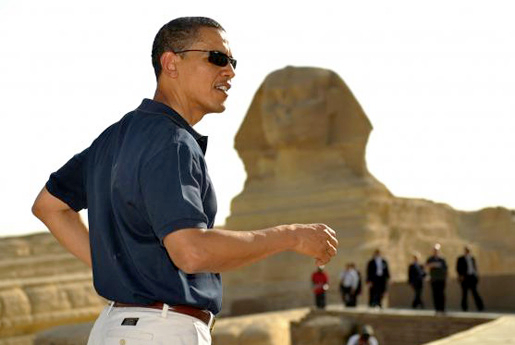Obama Wants Supreme Court Nominee Who Supports Abortion
By Anne E. Kornblut and Robert Barnes | Apr 29, 2010

President Obama forcefully stated his desire to nominate a Supreme Court candidate who supports abortion rights, saying last week that it is “very important” to have a justice who interprets the Constitution as protecting individual rights, including women’s.
Obama was careful to say that he would impose no litmus test on potential nominees. But he made it clear during a meeting with Senate leaders that he would take into account a candidate’s views on the constitutionality of abortion. Asked whether he would consider someone who opposes abortion rights, Obama replied: “I am somebody who believes that women should have the ability to make often very difficult decisions about their own bodies and issues of reproduction.”
“I will say the same thing that every president has said since this issue came up, which is I don’t have litmus tests around any of these issues,” he told reporters in the Oval Office. “But I will say that I want somebody who is going to be interpreting our Constitution in a way that takes into account individual rights, and that includes women’s rights.”
He added, “Part of what our core constitutional values promote is the notion that individuals are protected in their privacy and their bodily integrity, and women are not exempt from that.”
The question may be moot: Most, if not all, of the candidates on the White House shortlist are believed to support abortion rights, just as virtually all of the nominees President George W. Bush considered opposed abortion rights.
But in the charged political atmosphere of Supreme Court nominations, presidents have long avoided selecting, or having the appearance of selecting, candidates based on expectations of how they would decide specific cases. Justices are expected to approach cases independently and to interpret the Constitution, not to consider partisan demands.
White House officials insisted that there was nothing incongruous about Obama ruling out a litmus test and yet wanting a nominee who shares his views of the Constitution.
“I think a litmus test is when you . . . ask a direct question about ‘Do you believe this, do you believe that,’ ” White House press secretary Robert Gibbs said. “I think the president will ask any nominee to discuss how they view the Constitution and the legal principles enshrined in it.”
White House officials pointed to the answer Bush gave during the 2000 campaign — that he would pursue candidates who share his “overall philosophy” and “strictly interpret the Constitution as opposed to using the bench as a way to legislate law” — to argue that Obama had not violated any norms by declaring his intentions.
This is not the first time the question of a litmus test has arisen. After the nomination of Sonia Sotomayor last year, there was concern among some abortion rights groups about whether she would sustain a challenge to Roe v. Wade because her record on the issue was so scant. The White House privately assured the groups that they need not be concerned.
Under questioning from Republican senators during her confirmation hearings, Sotomayor denied that anyone at the White House had tried to discover her position. “I was asked no questions by anyone, including the president, about my views on any specific legal issue,” Sotomayor said.
Obama met Wednesday with Senate Majority Leader Harry M. Reid (D-Nev.), Senate Minority Leader Mitch McConnell (R-Ky.) and the leaders of the Senate Judiciary Committee, Patrick J. Leahy (D-Vt.) and Jeff Sessions (R-Ala.)
Reid and Leahy said they had discussed “no names,” but both said they had held separate, private conversations with the president about specific candidates, whom they declined to describe.
White House officials have said the process of nominating Justice John Paul Stevens’s replacement will take several weeks, with an announcement of a candidate possible in late May. But there are indications it is moving more quickly. Obama has had several conversations with potential picks, people close to the process said.















